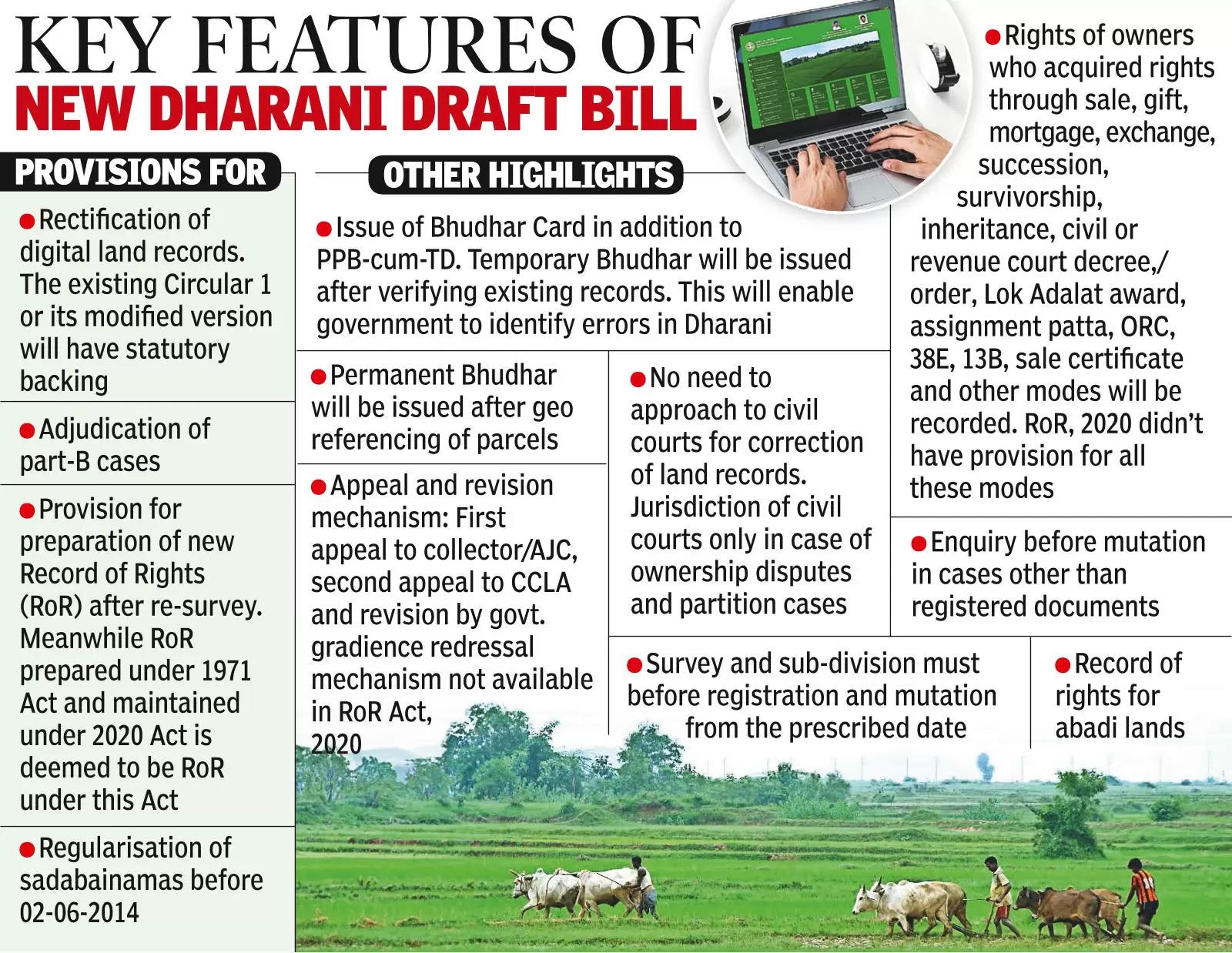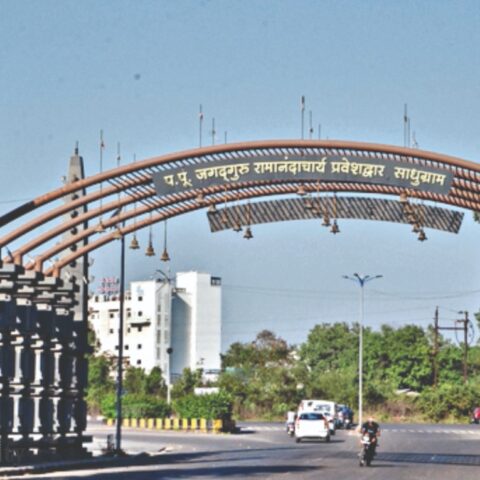
HYDERABAD: Simplified application process, a drastic reduction of modules and a robust appellate mechanism within the revenue department are some of the major proposed changes in the new Dharani draft bill (The Telangana Record of Rights Bill, 2024).
The old Dharani Act of the previous BRS govt and the portal it brought along had become a major political issue before the assembly elections and Congress had vowed to replace it with a better one to make all land-related processes less cumbersome.
In the old Dharani portal, there were 33 portals for sorting out problems with land records and titles, but people complained that it created more problems. Some of these modules used to reject applications saying that the applicant had come through an irrelevant module.
The system or the people manning it often failed to suggest the right module. Moreover, there was none to help the illiterate in the old system to choose the correct module to ensure the application went to the right place.
Now, the new Dharani draft bill provides a general window to accept all applications and it will be the responsibility of the people manning the system to channel it through the relevant module. The number of modules have also been reduced from 33 to 10. The other major change is easier recourse for corrections.
The previous Dharani law had no provision for revenue authorities to make corrections in the revenue records. This resulted in people being forced to approach courts for every issue.

Now, the new bill provides for a robust appellate mechanism within the revenue department. The RDO will act as an appellate authority over the decisions of the tahsildar. An additional collector will review the RDO’s decisions. At the top of the ladder, the CCLA will act as the revision authority. In a nutshell, the revenue courts that were practically erased by the BRS’ Dharani 2020 are being brought back by Dharani 2024.
“Succession by mere claims is no longer possible. The committee of officials that studied the old Dharani, the problems it created etc., have proposed some changes here. We have proposed to invite objections before conferring rights on properties through succession,” a member of the committee told TOI.
“We suggested that the new bill must be practically tested at the grass roots. We along with the district collectors will spend some time in the villages to get feedback from farmers. It will take about three months for the new bill to acquire the shape of an Act after incorporating all the changes suggested by the people,” he said.









